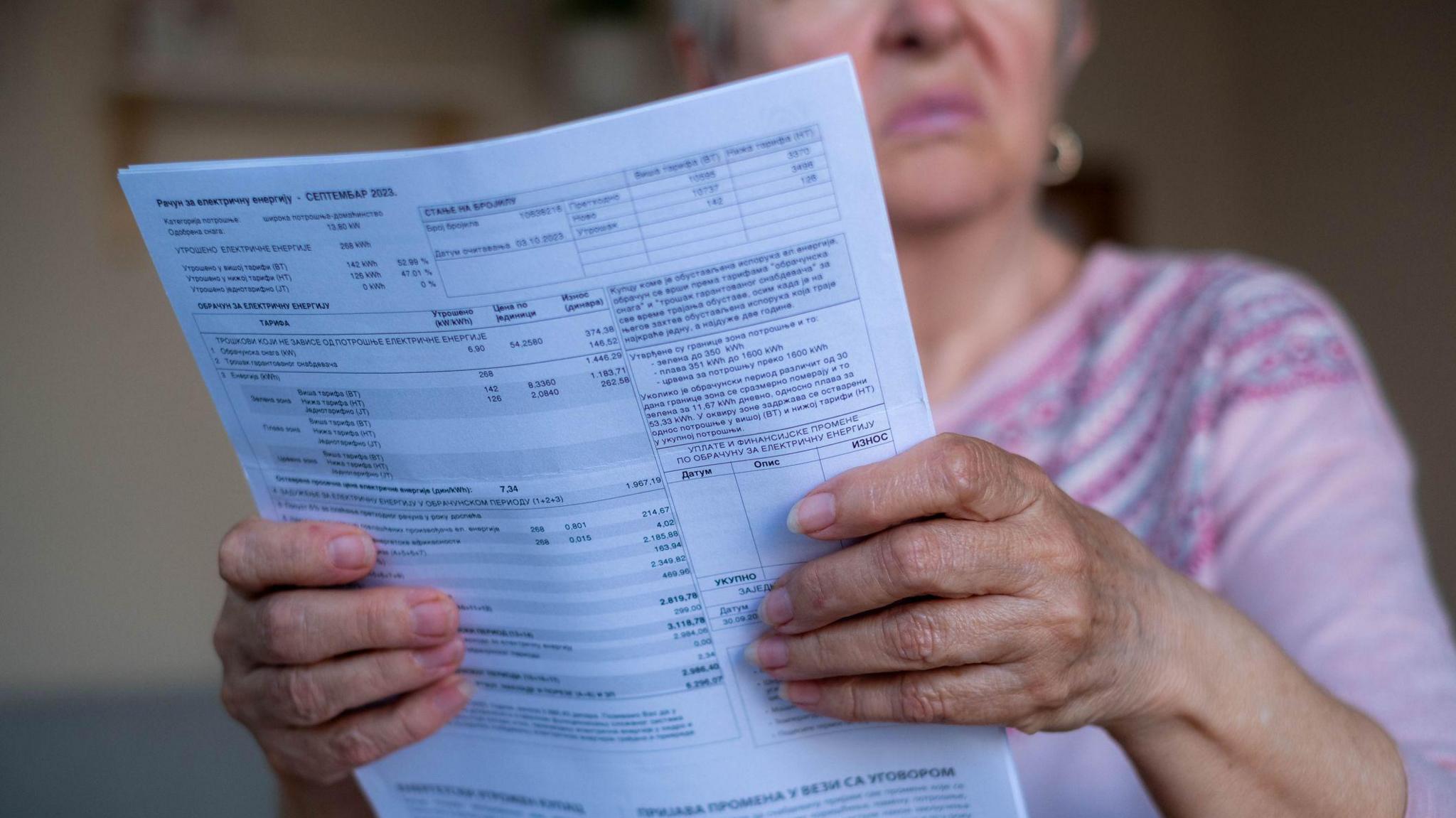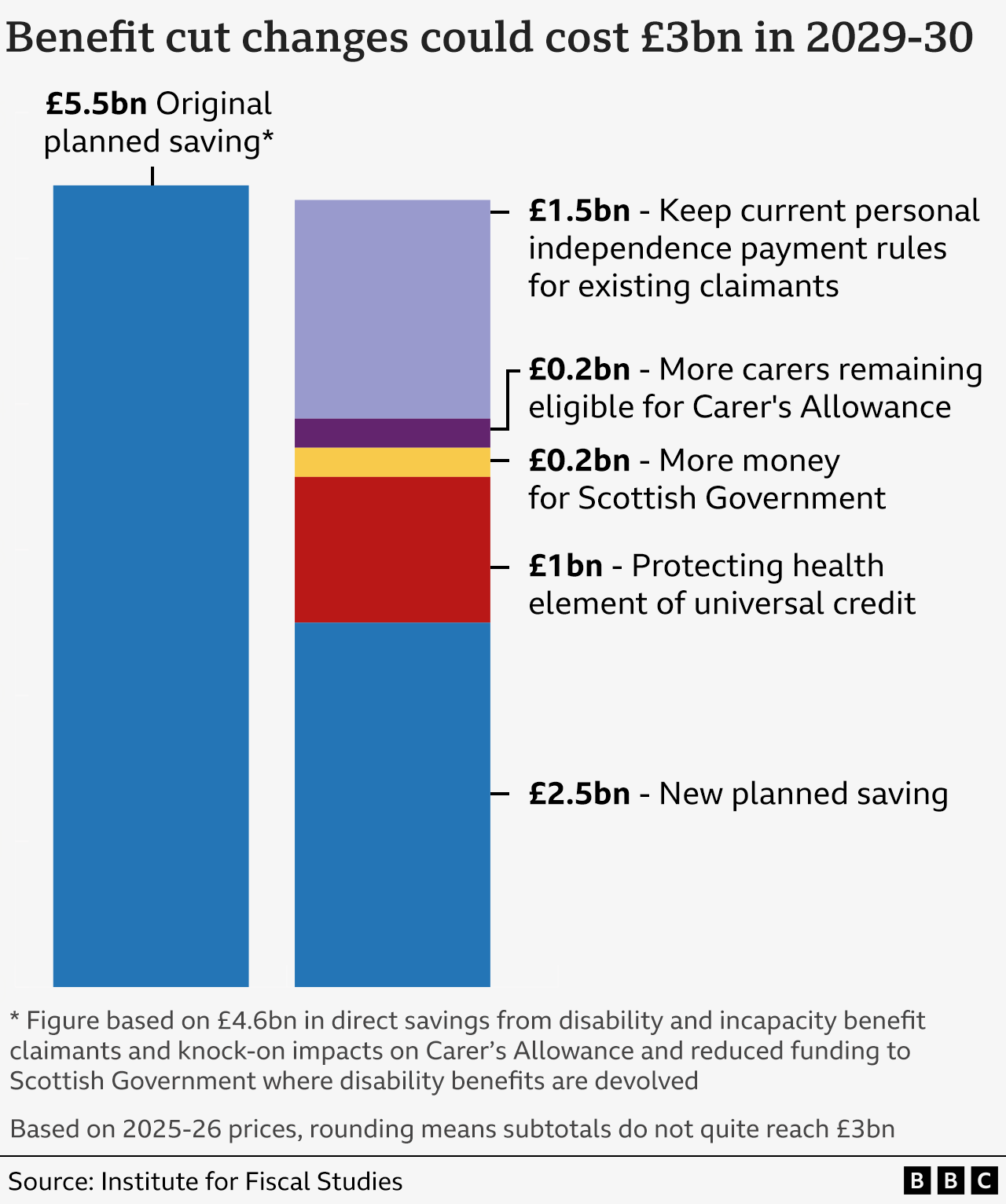Faisal Islam: How much will U-turn on disability benefits cost?

- Published
Labour's original plan to reform the welfare system was a hasty effort to try to make billions of pounds of cuts to a rapidly growing bill in order to help the chancellor meet her self-imposed rules on government borrowing.
But this latest U-turn raises significant questions about just how stability and credibility-enhancing it really is to tweak financial plans every six months to hit budget targets that change frequently due to a variety of reasons, including things such as the cost of borrowing which the government cannot control.
The latest deal suggests the welfare reforms will only save £2bn a year rather than the £5bn they were expected to save by 29-30.
The planned cut to disability personal independent payment (Pip) eligibility was set to raise the bulk of this saving, £4.5bn.
But now the changes will apply only to new claimants from November 2026, sparing 370,000 current claimants out of the 800,000 identified by the DWP impact assessment.
Another change announced in March, which now only applies to new claimants, involves how Pip applicants are assessed.
Pip assessments involve questions about tasks like preparing and eating food, washing and getting dressed. Each is scored from zero - for no difficulty - to 12 - for the most severe.
For example, needing help to wash your hair, or your body below the waist, would be awarded two points, but needing help to wash between the shoulders and waist would equate to four points.
Under the new system people will need to score at least four points for one activity, instead of qualifying for support across a broad range of tasks.
Rebel leader Meg Hillier and ministers have jointly stressed that the new four-point threshold will be a so-called "co-production".
This means they will be drawn up together with disability charities, so how the scoring will be applied is still unclear and suggests the changes may not save as much money as expected.
There will also be a knock-on impact for Carer's Allowance. It seems plausible that this part will cost about £2bn.
The original universal credit health changes - freezing the health element until 2029-30, and halving it then freezing it for new claimants from next April - would have raised £3bn in 2029-30.
Now 2.25 million existing recipients will see a rise in line with inflation, and the most severe cases out of 730,000 new claimants will no longer see this halved.
This would cost several hundred million, perhaps £1bn.

In addition, the government has promised to pull forward investment in employment, health and skills support in order to frontload support to get those on health benefits back into work.
This was only due to hit next year and be seen at its full £1bn level by 2029. This helps the coherence of the package as a piece of reform rather than cost-cutting.
There are many moving parts here, and it is worth noting that the original costings were highly uncertain and subject to assumptions about changed behaviours. For example, critically, the number of claimants who would successfully say that they were now above the new four-point threshold.
However, it seems likely that the total cost of the overnight deal is more than half of the original £5bn saving - a £2.5-3bn deal.
All will be revealed at the Budget by the government's financial watchdog, the Office for Budget Responsibility.
But this is in addition to the £1.25bn cost of the winter fuel payment U-turn, and would either have to come from higher taxes or cuts elsewhere, given the chancellor's "non-negotiable" borrowing rules.